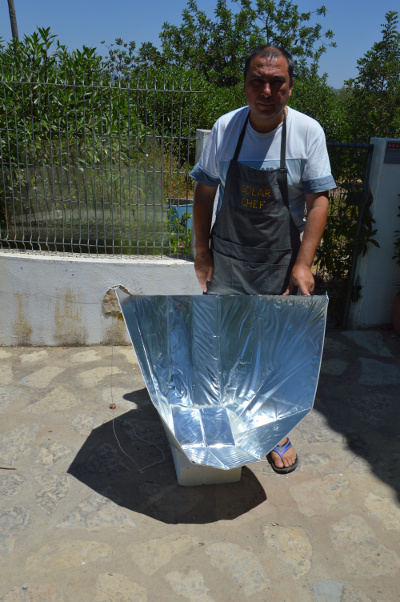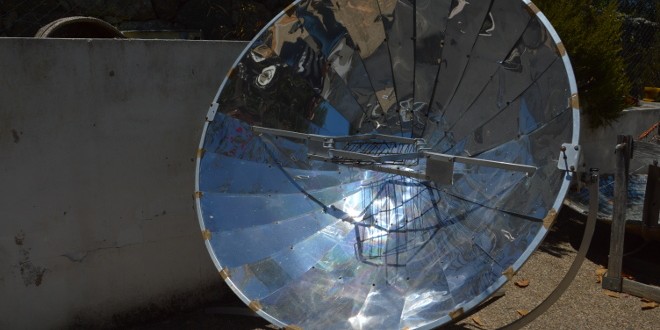48-year-old “solar chef” Celestino Ruivo is a lecturer at the Higher Institute of Engineering of the University of Algarve, and he started using solar ovens in July 2006.
His interest in solar ovens developed after he attended an international conference on solar cooking in Granada. Celestino Ruivo says that he “brought back a solar oven made of cardboard, called a solar cookit, in which I started cooked rice and chickens”. He adds: “From then on, I organised several activities spreading the word about solar cooking”.

Solar ovens can cook just like a stove, or gas or electric ovens. The main difference is that the cooking process is ecological, in which the resources of the sun are used for free. The parabolic oven cooks more quickly, as the rays of sunlight in the cooking area are very concentrated. For their part, ovens in the form of a box or panel cook foodstuffs more slowly.
The initial investment for obtaining a solar appliance can range from five euros to approximately 300 euros. As yet, there are few shops in Portugal where this equipment can be purchased.
According to Celestino Ruivo, he became interested in the use of solar ovens for a number of reasons, such as “enthusiasm, the use of energy as clean as sunlight, the economic question, as it reaches our homes free of charge, and we don’t cause any pollution”.
The solar chef has a total of seven ovens at home, for domestic purposes and for receiving guests. However, he says that “on days when there’s no sunshine, I have to resort to electricity or gas, with these being the real alternative energies, and not solar power, which should be given priority”.
www.sun-and-ice.de
www.solarfood.de
www.solarcooking.org/plans/
www.gosunstove.com
 Eco123 Revista da Economia e Ecologia
Eco123 Revista da Economia e Ecologia



